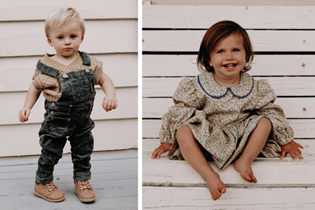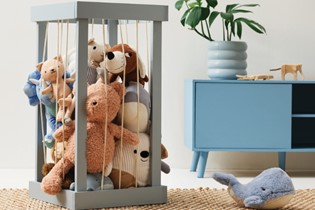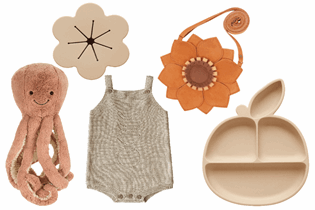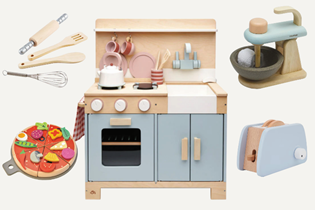What kind of parent are you? Brick Wall, Jellyfish, Backbone or Gardener?

Are you a 'keep the peace' kind of mama or is 'it's my way or the highway' more your vibe? Researcher, writer, and mum, Miriam McCaleb takes us on a tour through some different parenting styles.
THE FOUR PARENTING STYLES
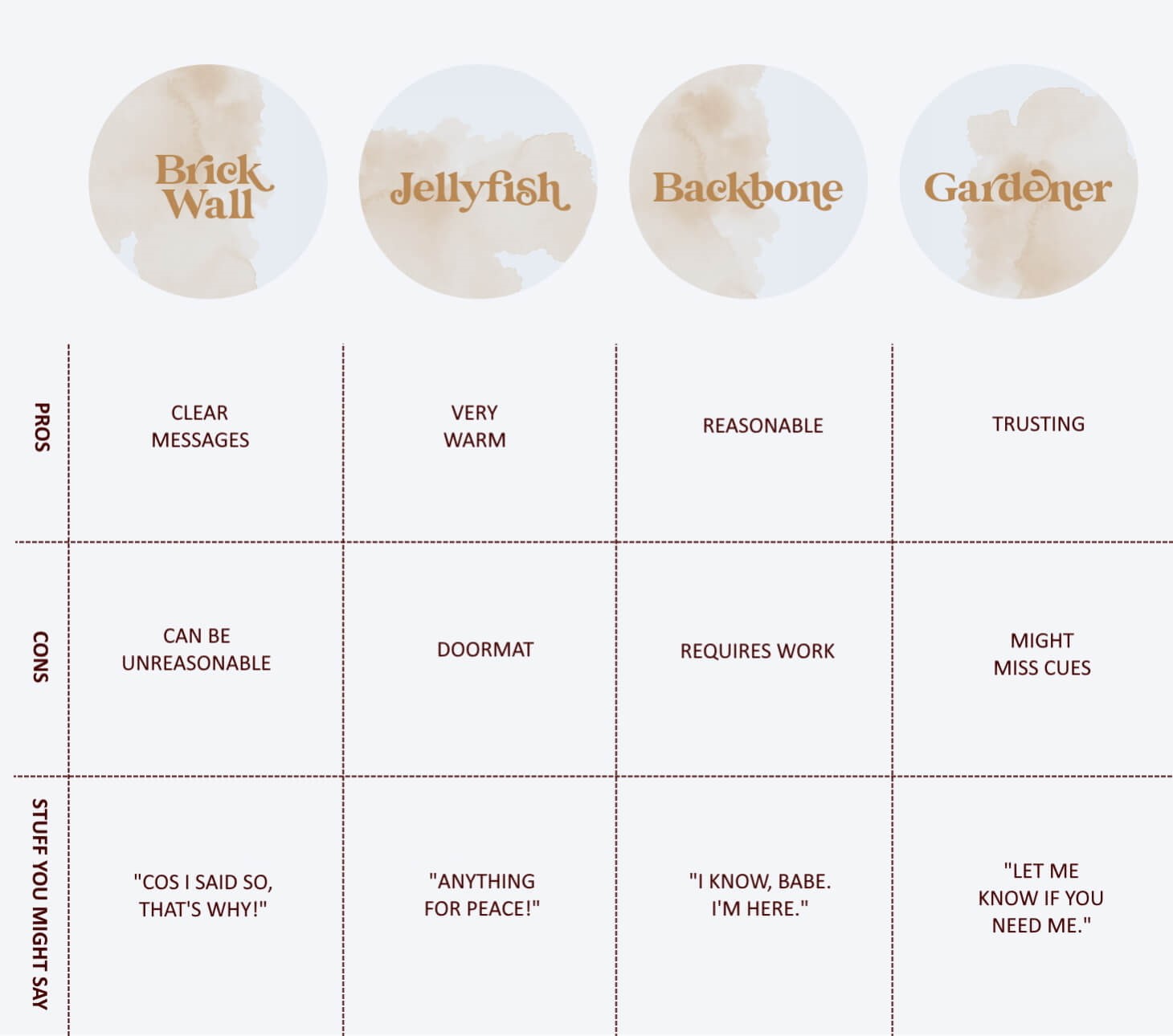
Hey mamas, first up, I know no two families are the same. We are all unique expressions of our own histories, all writing our own stories. That said, us humans are a species who love sorting everything into categories. We love a pattern. Can’t help it – it’s our brains! It shouldn’t be a surprise that so much social science research – and that includes research about parenting and child development – winds up describing ways the world is grouped.
So maybe you will read this article about parenting styles and recognise yourself straight away in one of the groups I’ll describe, or p’raps you might be a hybrid? In any case, it can be useful to pay attention to what we are doing. This helps us to decide if it’s how we want to be rolling, and think about what we might do instead.
Let’s think about that as we take a tour of parenting styles – I’m using those first described by Barbara Coloroso in her book Kids are Worth It, from 2002.
THE BRICK WALL
The first style is called BRICK WALL. No negotiations. My way or the highway! This is a parent who wants to say it once, and is willing to say it loud. One good thing about this sort of parent: they are usually pretty predictable for kids, and that is worth something. Clear messages and consistencies are good things.
But Brick Walls miss opportunities to teach their kids how to negotiate. They fail to show their children about the ways we can benefit from reading a situation, that the answer to many questions is “it depends”. They don’t model how to review contributing factors, or how to consider what might inform a person’s response to whatever.
Brick Walls also run the risk of being a slightly scary figure to their kids, and this breeds a kind of distance which doesn’t serve anyone in the long run. What a shame to miss out on the joys of a close connection with our children – who will our kids go to for comfort if they find us a bit frightening?
THE JELLYFISH
Speaking of comfort, it’s time to meet the JELLYFISH. These parents are superb at listening, empathising and caring. But when it comes to setting limits, making rules, or following through – they waft about here and there, floating on the currents.
I suspect that some Jellyfish got themselves stuck in the pattern of parenting that works really well for little babies, and just never quite updated their skill set. The repertoire of parental habits and behaviours that some Jellyfish use are the behavioural equivalent of squashing a four-year-old into an infant capsule car seat.
That is to say: sometimes, for the greater good, we have to learn how to stand firmly. It can be difficult, it often results in sadness, anger, or whiny nonsense from the small people. But if we can make peace with being unpopular with our children from time to time, we do them a service in the long run. Learning to cope with inconveniences in the big world – preferably with humour – is an important long-term life lesson, so we help our kids when we give them opportunities to practise.
Practising life skills is so much of what childhood is about, and learning to stand alongside the struggle can be really difficult. You know that story about the child watching a butterfly emerge from the chrysalis? The squished up butterfly is moving all painstakingly – struggling, and the child really wants to pull the chrysalis away, and help the butterfly out. Luckily, a grandparent is nearby. Instead, they hold the child’s hand and explain, “If the butterfly doesn’t struggle a bit, its wings will never be strong enough to fly”.
I haven’t had an entomologist correct me yet, so let’s hope this is accurate, and not just a sweet story! I have always found it a useful metaphor to just remind myself to take a breath before I launch into whatever bit of enthusiastic 'mumming' I’m about to do. Let. Them. Practise.

THE BACKBONE
This is something a parent in the BACKBONE camp aims to do. Stand alongside big emotions, offer appropriate warmth, AND enforce appropriate limits – calmly and consistently. And yeah, is still open to negotiation. Maybe you have a certain bedtime for your kids, but you make Friday night a bit later, for a family movie in PJs.
It takes work, it’s an ever-changing landscape of many moving parts, but the result can be the parenting equivalent of good core strength! You can wave about a bit like a tree (like the good bits of a jellyfish) but you are strongly rooted into the earth, and solid. Like the good aspects of being a brick wall.
This makes Backbone parenting pretty aspirational, I reckon. It’s like a floating half moon pose. It looks beautiful when well executed, occasionally I can pull it off, but most of the time I just fall over, and all too often get annoyed.
But I’ve had this crazy thought, that I might insert a fourth parenting style, which is sort of an anti-style, in that it’s not about 'parenting' at all. What, WHAT?
THE GARDENER
In her book The Gardener and the Carpenter, Alison Gopnik lays out the case that we parents who think about parenting (which is most certainly me – I think about, study about, read about parenting), in fact this whole act of naming parenting is really new. Maybe 30 years old. Before that, people were largely BUSY. Living. Doing life. Making lots of mistakes, sure, and not everyone treating children well, but good and bad, just as now.
Those of us parenting in a social science, brain scan, information-rich world are well aware that children’s early experiences are really important, and we are probably not being very well supported with resources or skills to do much with that information. So, in a wee anxiety soup, we do our best – if we are lucky we have someone to talk to. Ideally we can have chats with someone whose family dynamics we admire. We read parenting magazines (hi!). Sometimes we tie ourselves in knots trying to 'get it right'.
That’s not ideal, right? Not a particularly calming environment, for parent or child. This can be the result of treating parenting like you are a carpenter, and your child is made of wood. Working away with your chisel, trying to shave bits off or smooth bits out, getting splinters, possibly getting a crick in your neck from all the sanding.
Gopnik makes the case that we are kidding ourselves that the people our kids will become is a result of our conscious efforts, and not all the unconscious messages they receive from us every minute of every day! As I understand it, we can say “Speak kindly to your sister” all day long, but if we bark it in a seething tone, we are not likely to hear our kids speaking kindly any time soon. Makes sense.
Instead, what if we cut ourselves a little slack and take comfort in the image of the Gardener, who Gopnik describes as feeding the soil, planting and tending the seeds, and letting the sunshine do her thing. Sure, there are some phases of intense work, and things can get a bit muddy, but in between the maintenance of weeding and the seasonal tidying, it is quite possible to sit down and have a cuppa in the sun. Our sunflowers won’t grow taller if we hover over them. You know?
In terms of how we raise our children, this can feel a bit more hands-off, but it’s still pretty minds-on. It’s about making decisions to observe a few more things, to let some stuff go, and to follow through on guiding those behaviours that will serve a person into their future.
In this very publication, dear reader, I have called this 'growing great flatmates'. Staking a tomato plant could be thought of like insisting your son load his own plate into the dishwasher. This will bear fruit long term. It is worth the effort.
And I’ll end with a socially distant hug for you, because it can feel really tender to look some of this in the eye. Many of us stumble into being parents before we have fully made sense of our own experience of having been the child of our own parents! Family life can be a lot to deal with, quite often. Sometimes our own way of being in a family is an unconscious repetition of whatever we experienced, sometimes it's a knee-jerk opposition to the same.
It can be really useful to just notice our tendencies, to check in with the family’s rhythms, touch base with the habits. And forgive yourself if you find yourself being a wall, a jellyfish, an overthinker!
Miriam McCaleb is a researcher, writer, teacher and mum of two great girls. Most days she aims to be a reasonable Gardener parent with Backbone, until about half-seven at night, when she turns into a hideous Brick Wall. The exception is birthdays, when it's Jellyfish all the way. baby.geek.nz.

AS FEATURED IN ISSUE 59 OF OHbaby! MAGAZINE. CHECK OUT OTHER ARTICLES IN THIS ISSUE BELOW












